Every day in the U.S., 20 veterans and military service members will commit suicide.
That’s 7,300 every year. Twice what was taken from us on 9/11. And over twice of those we lost in Afghanistan.
That number—released in 2018 and returning numbers from is down from 2005-2015—is lower than the previous statistic of 22 a day.
That number—according to the VA—also includes active duty service members, as well as members of the Guard and Reserve.
There are a number of reasons that might lead someone to this choice. It could be depression, or underlying mental health needs. It could be homelessness, or a feeling of not…quite…fitting in.
But no matter how much we crunch numbers or revisit studies, no matter how many “reasons” we can attach each loss to, one thing doesn’t change:
It’s still too many.
But even as government institutions release grants for those researching veteran suicide or for those who are aiding in its inevitable fallout, we as a society continually skim over one of the main factors in these discussions: a lack of purpose or meaning in one’s own life.
Now, anyone who tells you they know everything about this subject is wrong, and I’m absolutely not one to put myself on that list. I’m no expert; I’m no doctor. But some of those who are considered such have drawn some of the same conclusions, and I think it’s time we pay attention.
In a study released by Marnin Heisel and Gordon Flett in the Journal of Psychopathology and Behavioral Assessment, research showed that yes, a lack of purpose (or meaning, or “satisfaction” in life) is absolutely connected to depression and suicide.
In a New York Times piece, behavioral scientist Dr. Clay Routledge mourned that our suicide crisis was a “a crisis of meaninglessness.” He went on to say, “In order to keep existential anxiety at bay, we must find and maintain perceptions of our lives as meaningful.”
Now, I repeat: I’m no expert on this subject, but I do happen to believe that helping our veterans and military families find purpose in their lives—and especially after transition, when “mission” is not enforced daily and is far more nebulous—is one of the most important things we can be doing for our men and women transitioning back into “civilian life”. I believe it so much that I’ve staked my own company on it, and created our RECON:Compass program in spite of the many voices that told me that the “most needed thing” was a job, and we should focus on placement or recruiting, instead.
I agree, jobs are important. I just happen to think that purpose might be even more so.
What do you think? I’d invite you to join in this conversation with me. Please email me your thoughts or find our thread on Facebook—and feel free to tell me all the ways I’m wrong, if you so choose. But let’s start this conversation, and let’s start it NOW.
Because tomorrow will be 20 more lives too late.

